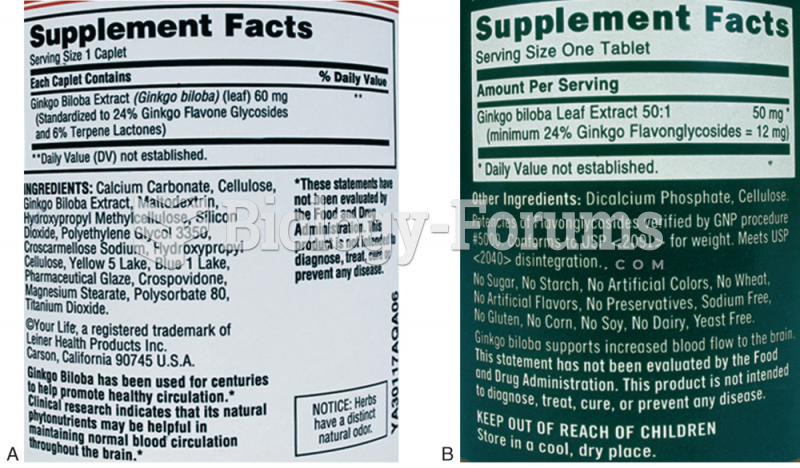Answer to Question 1
Correct Answer: 4
Rationale 1: I can't take any other medication with ginkgo biloba is incorrect because there are very few medications that cannot be combined with ginkgo biloba.
Rationale 2: I need to be on a low-fat diet while I am taking ginkgo biloba is incorrect because there are no dietary restrictions when a client is taking it.
Rationale 3: Ginkgo biloba will keep me from developing Alzheimer's disease is incorrect because there is no evidence that ginkgo biloba will prevent the development of Alzheimer's disease, although it might help stabilize the disease.
Rationale 4: Anticoagulant drugs increase the risk of bleeding if taken with ginkgo biloba.
Global Rationale: Anticoagulant drugs increase the risk of bleeding if taken with ginkgo biloba. I can't take any other medication with ginkgo biloba is incorrect because there are very few medications that cannot be combined with ginkgo biloba. I need to be on a low-fat diet while I am taking ginkgo biloba is incorrect because there are no dietary restrictions when a client is taking it. Ginkgo biloba will keep me from developing Alzheimer's disease is incorrect because there is no evidence that ginkgo biloba will prevent the development of Alzheimer's disease, although it might help stabilize the disease.
Answer to Question 2
Correct Answer: 4
Rationale 1: Tacrine (Cognex), a direct-acting parasympathomimetic, is known for its major side effect of hepatotoxicity.
Rationale 2: Tacrine (Cognex), a direct-acting parasympathomimetic, is known for its major side effect of hepatotoxicity.
Rationale 3: Tacrine (Cognex), a direct-acting parasympathomimetic, is known for its major side effect of hepatotoxicity.
Rationale 4: Tacrine (Cognex), a direct-acting parasympathomimetic, is known for its major side effect of hepatotoxicity.
Global Rationale: Tacrine (Cognex), a direct-acting parasympathomimetic, is known for its major side effect of hepatotoxicity. The nurse would not need to monitor the WBC, CBC, or platelet count.







